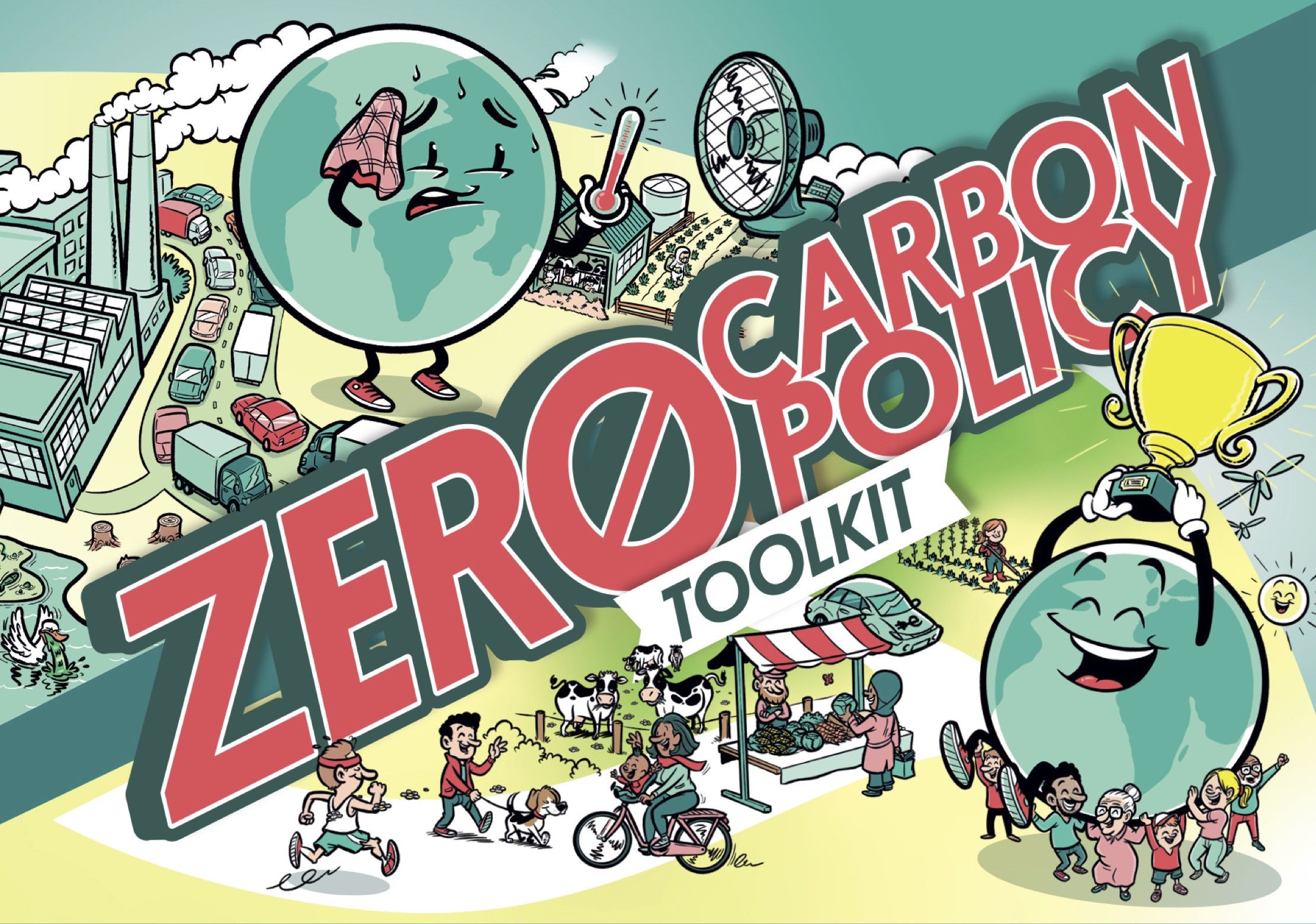
Zero Carbon Policy Toolkit
The Toolkit is made up of 10 blockers to zero carbon, and 10 enablers. Each of these represents an intervention in our economy which taken together
Explore the Enablers and Blockers of Zero Carbon
Trade and Investment Requirements for Zero Carbon Report introduced Green House’s new ‘Blockers and Enablers’ toolkit to aid policymakers to shift trade and infrastructure choices from global growth to facing up to the climate emergency. Having explore the Toolkit though a series of reports as part of the Climate Emergency Economy project in collaboration with the Green European Foundation, we have now compiled a visual booklet available to download above.
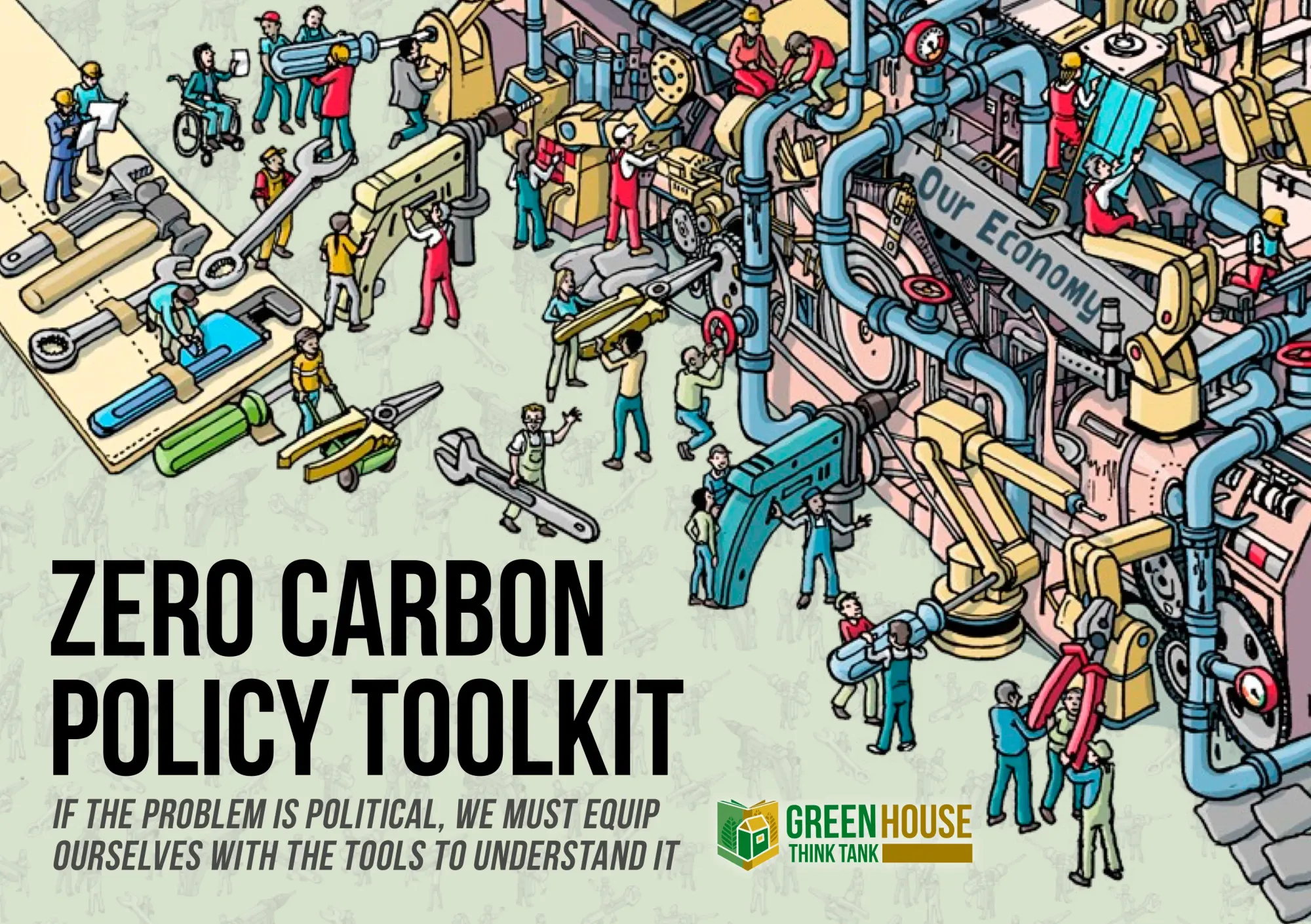
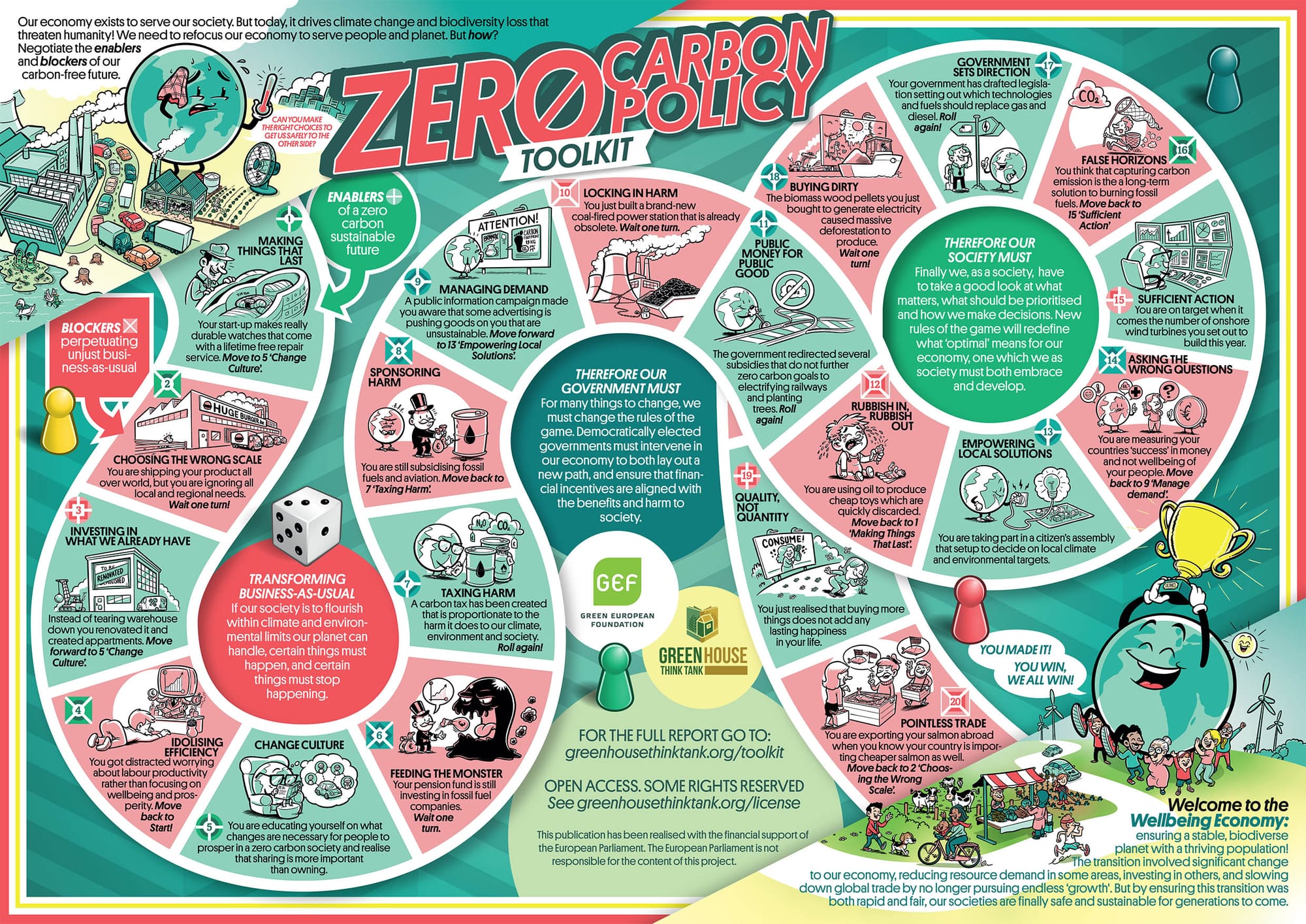
Toolkit Overview
The policy toolkit is made up of 10 blockers of zero carbon, that perpetuate unjust business-as-usual, and 10 enablers of a zero carbon sustainable future. Each of these blockers and enablers falls into one of three families:
- Transforming business-as-usual (what fundamentally must change)
- Therefore Our Government Must (where politicians must lead)
- Therefore Our Soceity Must (how companies and individual must response)
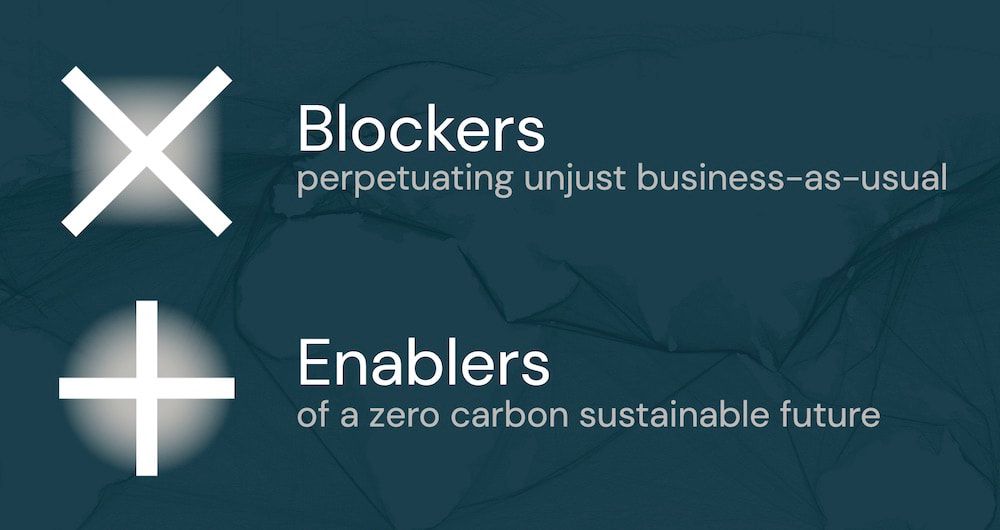
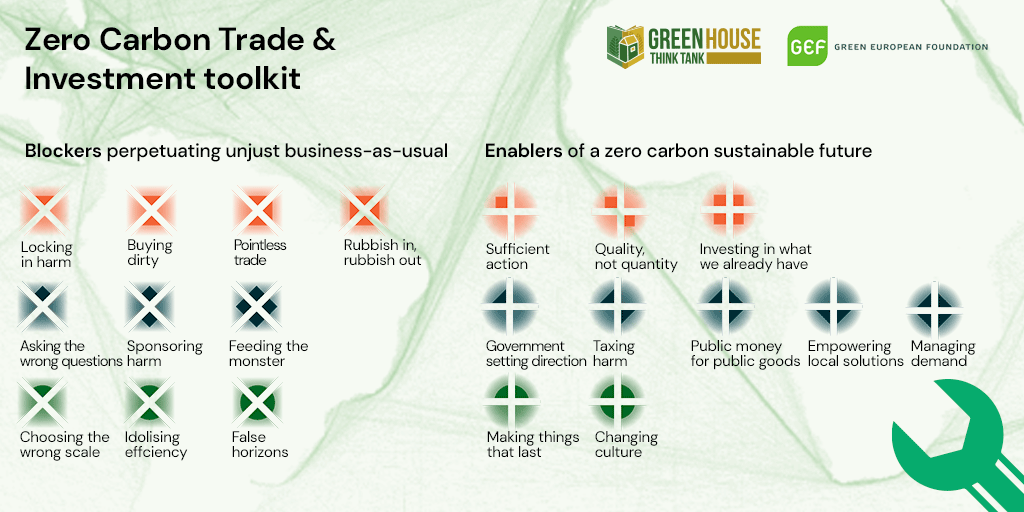
So what is 'Locking in harm' or 'Sufficient Action'?
Below are the description of a few of the enablers and blockers in the toolkit. The page numbers indicate where in the Trade and Investment Requirements for Zero Carbon Report you can find out more about that enabler or blocker. Another six enablers and blockers are explored in the Infrastructure Requirements for Zero Carbon report. The remaining four will be cover in future publications as part of the Climate Emergency Economy project.
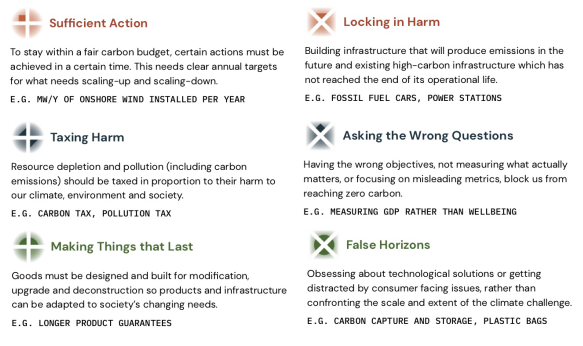
Exploring the Toolkit:
These reports each explore a different subset of the 10 enablers and 10 blockers to reaching a Climate Emergency Economy

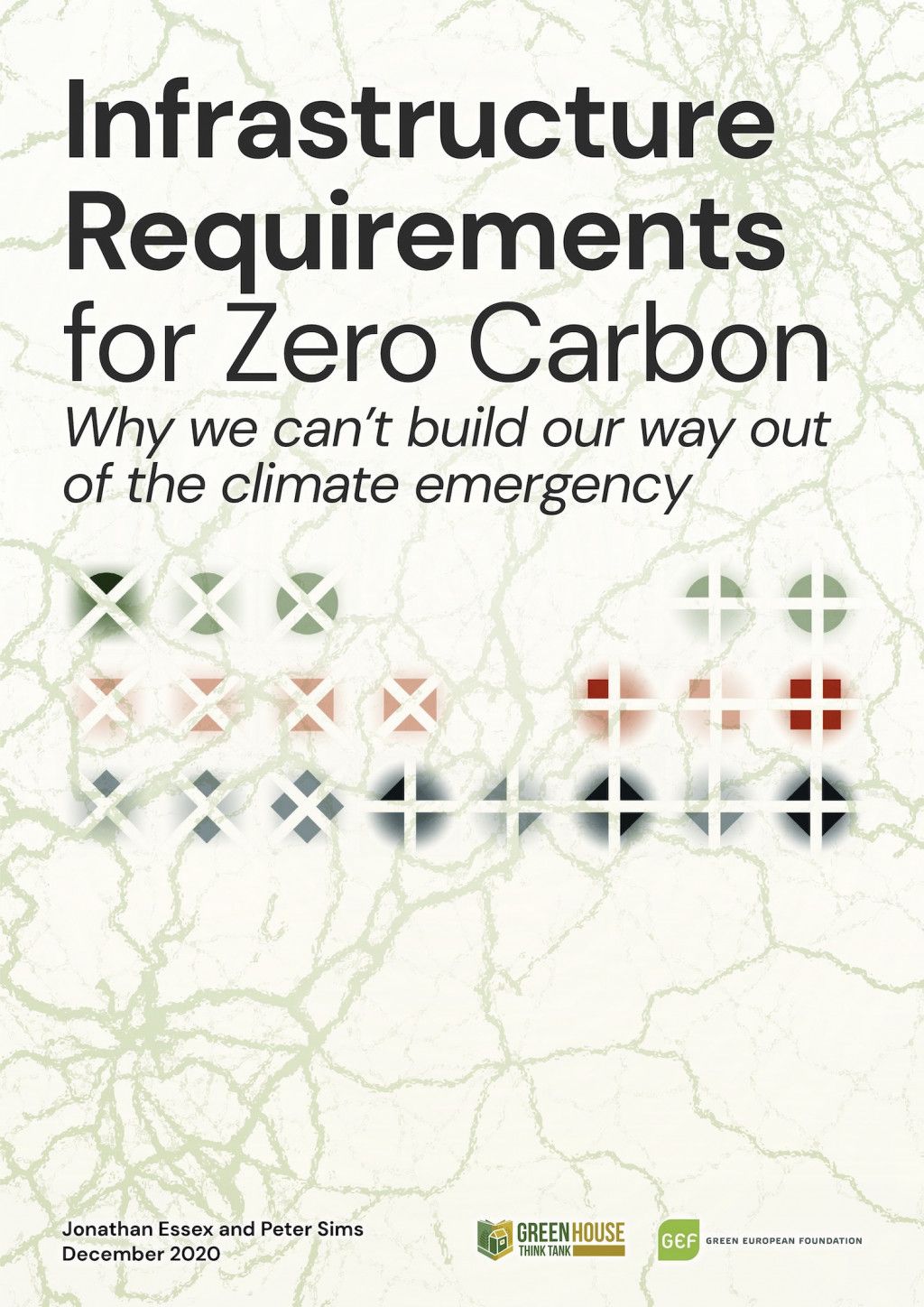

These intervention should deliver:





